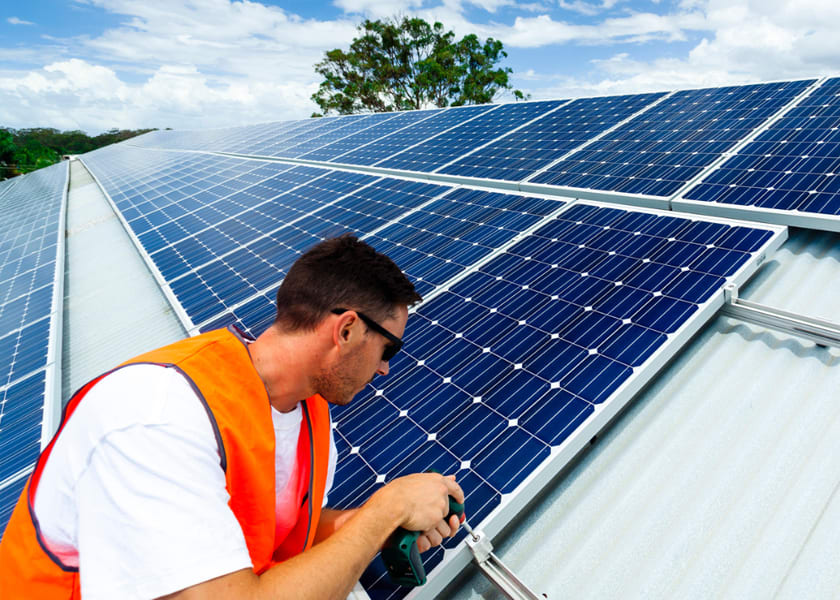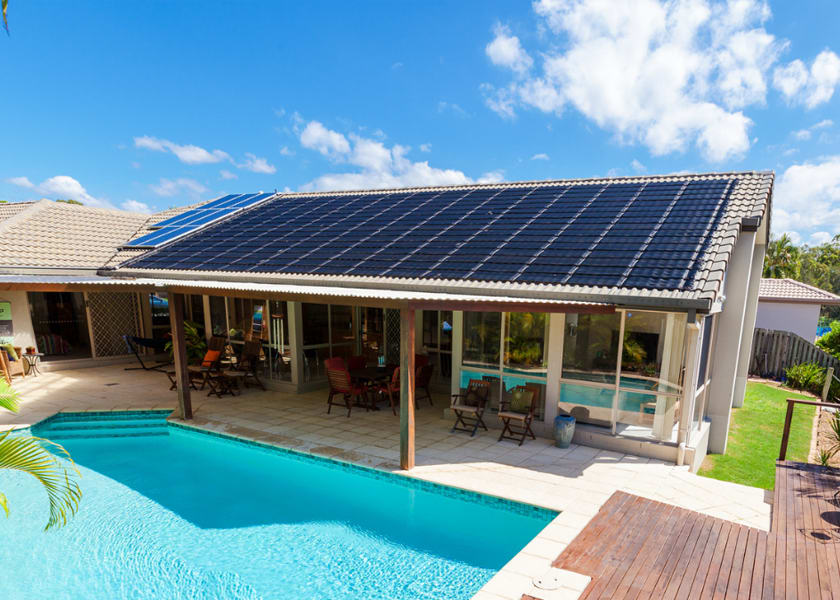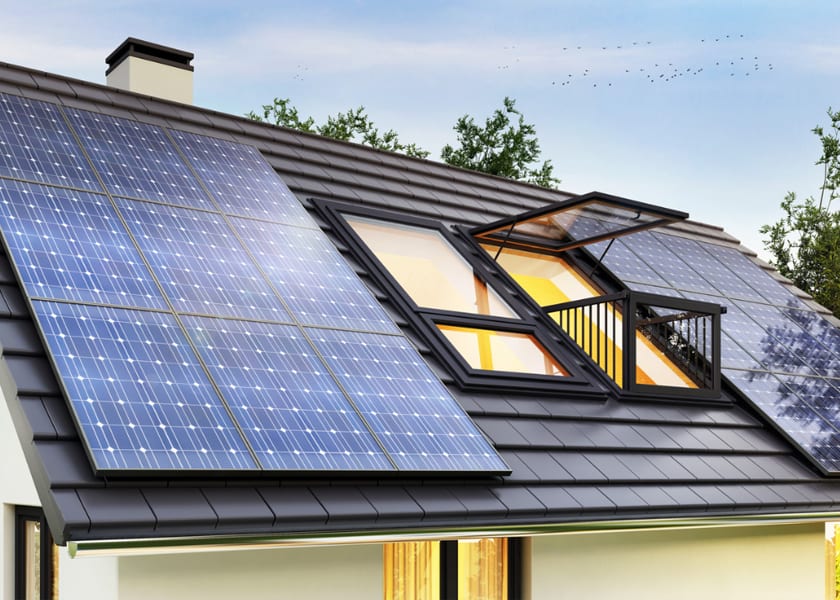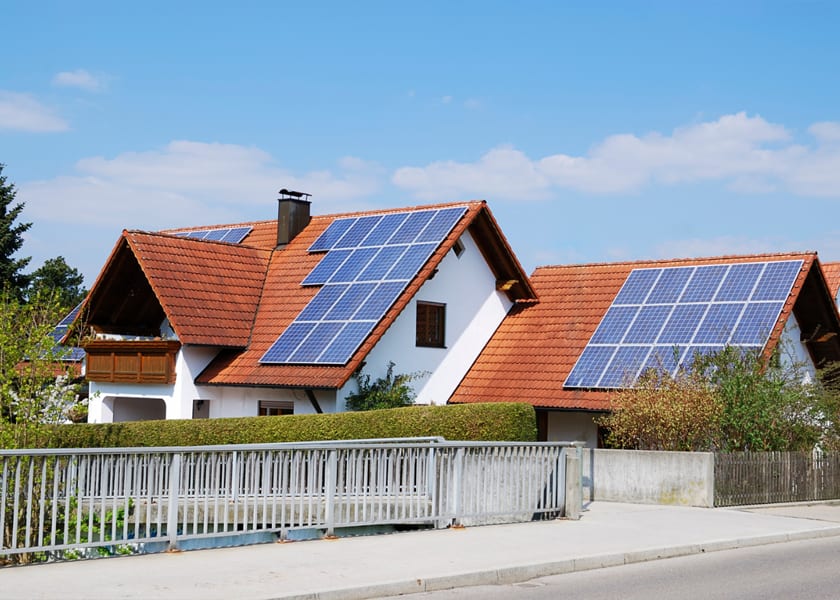Momentum Solar 
Best Solar Plans (Rating A+)
- 25 Year Equipment Warranty
- Maintenance Included
- Solar Roofs & Panel Install
- $0 Down Install Plans
The Economics of Solar Panels
Financial Savings: Solar panels can lead to substantial savings on electricity bills over time. By generating your electricity, you can reduce or even eliminate your reliance on the grid, resulting in lower monthly costs.
Return on Investment (ROI): Calculating the ROI of solar panels involves considering the upfront installation costs and comparing them to the long-term savings. In many cases, solar panels pay for themselves within a reasonable timeframe.
Government Incentives and Tax Credits
Government incentives and tax credits play a pivotal role in making solar energy more accessible and affordable for homeowners. These initiatives aim to offset the initial costs of solar installation and reward homeowners for adopting sustainable energy practices. Let's delve deeper into these incentives and their significance:
Federal Tax Credits: The Investment Tax Credit (ITC), also known as the federal solar tax credit, has been a driving force behind the growth of residential solar installations. Under this program, homeowners can claim a substantial tax credit based on a percentage of their solar installation costs. As of the last update in September 2021, the ITC covered 26% of the installation costs, significantly reducing the financial burden of going solar.
However, it's essential to stay informed about the ITC's expiration dates and any changes in its percentage. The ITC is subject to periodic revisions, and it's crucial for homeowners to take advantage of it while it's available.
State and Local Incentives: In addition to federal incentives, many states and localities offer their own incentives and programs to encourage solar adoption. These can include:
Rebates: Some states provide cash rebates to homeowners who install solar panels. These rebates can be a significant financial incentive and help lower the upfront costs of installation.
Grants: Certain regions offer grants to support renewable energy projects, including residential solar installations. These grants may cover a portion of the installation costs, making solar more affordable.
Net Metering: Net metering programs enable homeowners to receive credit for excess electricity their solar panels generate and feed back into the grid. This credit can offset future electricity bills, effectively "banking" excess energy for later use.
Property Tax Exemptions: Some states offer property tax exemptions or abatements to homeowners with solar installations. This can help protect homeowners from increased property taxes resulting from the added value of the solar system.
Sales Tax Exemptions: In certain areas, the purchase and installation of solar equipment are exempt from sales tax, reducing the overall cost of going solar.
Performance Based Incentives: Some regions offer performance-based incentives, which reward homeowners based on the energy production of their solar panels. This incentivizes homeowners to maximize their system's efficiency.
It's essential for homeowners to research and understand the specific incentives available in their state and local area. These incentives can vary widely, and taking advantage of them can significantly improve the financial viability of a solar installation. Government incentives and tax credits, both at the federal and local levels, make solar energy for homes not only environmentally responsible but also economically attractive.
By leveraging these incentives, homeowners can effectively reduce the initial costs of installation and accelerate their return on investment, making solar energy a practical and financially rewarding choice. As the world continues to prioritize clean energy solutions, these incentives are likely to play an increasingly vital role in promoting solar adoption and mitigating climate change.
Environmental Benefits of Solar Panels
Reduced Carbon Footprint: Solar panels significantly reduce greenhouse gas emissions by generating clean, renewable energy. This contributes to the fight against climate change and environmental degradation.
Resource Conservation: Solar power reduces the demand for finite fossil fuels and minimizes water usage compared to traditional power generation methods.
Factors to Consider
Location and Sunlight: The effectiveness of solar panels is influenced by location and the amount of sunlight a region receives. Areas with more sun tend to see higher returns on solar investments.
Shading and Obstructions: Shading from trees, buildings, or other obstructions can impact the efficiency of solar panels. It's crucial to assess the potential for shading when planning an installation.
Upfront Costs: The initial cost of purchasing and installing solar panels can be a deterrent for some. However, various financing options are available to make solar more accessible, including loans, leases, and power purchase agreements (PPAs).
Maintenance and Lifespan
Minimal Maintenance: Solar panels require minimal maintenance, with occasional cleaning and inspections. They are designed to withstand various weather conditions and have a long lifespan.
Warranty and Repairs: Most solar panels come with warranties that cover maintenance and repairs, ensuring peace of mind for homeowners.
Technological Advancements
Efficiency Improvements: Ongoing research and development in solar technology are leading to more efficient panels, enhancing the energy generation capacity of solar installations.
Energy Storage: Advancements in energy storage solutions, such as batteries, are making it possible to store excess energy for use during non-sunny periods, further increasing the value of solar installations.
The Future of Solar Panels
Emerging Technologies: Perovskite solar cells, transparent solar panels, and other emerging technologies are on the horizon, offering the potential for more versatile and efficient solar solutions.
Grid Integration: The integration of solar power into smart grids is poised to transform the energy landscape, providing more reliable and sustainable energy distribution.
Conclusion
The decision to invest in solar panels involves a careful consideration of various factors, including financial savings, environmental benefits, location-specific variables, and technological advancements. While solar panels require an initial investment, the financial returns, government incentives, and positive impact on the environment make them a compelling choice for many homeowners and businesses.
Ultimately, the worth of solar panels depends on individual circumstances and priorities. By conducting a thorough analysis of the factors discussed in this article and consulting with solar experts, you can make an informed choice that aligns with your goals for sustainability, energy independence, and financial well-being. Solar panels represent not just an investment in your property but also a commitment to a cleaner, greener, and more sustainable future.








